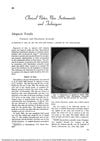Effect of Thioredoxin Reductase 1 on Glucocorticoid Receptor Activity in Human Outer Root Sheath Cells
March 2007
in “
Biochemical and Biophysical Research Communications
”
TLDR Thioredoxin reductase 1 does not affect glucocorticoid receptor activity in hair follicle cells.
The study investigated the expression of glucocorticoid receptor (GR) and thioredoxin reductase 1 (TrxR1) in scalp specimens from normal donors (4 cases) and glucocorticoid-resistant alopecia areata (AA) patients (8 cases). It was found that GR expression was similar in both normal and glucocorticoid-resistant AA scalp samples, with intense nuclear staining in the outer root sheath (ORS) layer of hair follicles. The research suggested that while glucocorticoids are commonly used to treat AA by modulating immune responses, the resistance observed in some patients might not be due to differences in GR expression. The study was supported by grants from the Korea Health 21 R&D Project and the Brain Korea 21 Research Fellowship.







